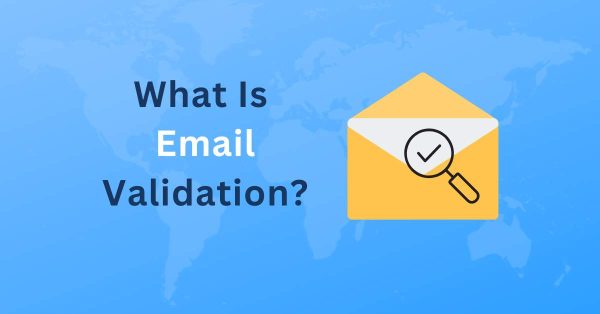Email Validation: How It Can Help Your Small Business?

Email Validation; How It Can Help Your Small Business?
What Is Email Validation?
Email validation is a process that verifies the authenticity, deliverability, and accuracy of email addresses in your marketing database. It ensures that the emails you send out will reach real, active users, and not bounce back or end up in spam folders. By using email validation services, small businesses can clean up their email lists, identify and remove invalid or risky email addresses, and improve the chances of their emails being successfully delivered to the intended recipients.
Table of Contents
The Importance of Email Validation for Small Businesses
Reducing Bounce Rates
High bounce rates can negatively impact your sender reputation and deliverability. Email validation helps identify invalid or non-existent email addresses, preventing your messages from bouncing back. By reducing bounce rates, your small business can maintain a positive reputation with email service providers and ensure that your future campaigns are more successful.
Maintaining Sender Reputation
Sender reputation plays a crucial role in email deliverability. If your emails are often marked as spam or bounce frequently, it can damage your sender reputation, making it harder for your emails to land in the recipients’ inboxes. Email validation allows you to maintain a good sender reputation, increasing the chances of your emails reaching the inbox.
Improving Email Deliverability
With validated email addresses, your email deliverability rates are likely to improve significantly. Internet Service Providers (ISPs) and email providers view emails from validated sources as more trustworthy and relevant, making them more likely to deliver your emails to the recipients’ primary inbox.
How Does Email Validation Work?
Email validation services employ various techniques to ensure the accuracy of email addresses. Some of the key steps include:
Syntax Check
The syntax check identifies email addresses with improper formats or typographical errors. It helps to weed out addresses that are missing “@” symbols or have extra characters.
Domain Verification
Domain verification validates the domain of the email address to ensure that it exists and can receive emails. It checks for domain-specific errors that could prevent email delivery.
Role Account Detection
Role accounts, such as “support@domain.com” or “sales@domain.com,” are often managed by multiple users and may result in high bounce rates. Email validation detects such role accounts and flags them for review.
Disposable Email Detection
Some users use temporary or disposable email addresses for sign-ups or registrations. Email validation identifies these addresses and marks them as risky.
SMTP Check
The SMTP check involves a real-time attempt to connect with the recipient’s email server. This process helps to validate the mailbox and determine if the email is deliverable.
Choosing the Right Email Validation Service
When selecting an email validation service for your small business, consider the following factors:
Accuracy and Reliability
Look for a service that provides high accuracy in email verification. The service should also be reliable, with quick response times and minimal downtime.
Data Security and Privacy
Ensure that the email validation service takes data security and privacy seriously. Your customer data should be handled with care and not shared with unauthorized parties.
Integration Options
Choose a service that seamlessly integrates with your existing email marketing platforms or CRM systems. This will make the validation process smoother and more efficient.

Email Validation Best Practices for Small Businesses
To make the most of email validation, follow these best practices:
Regular Data Cleansing
Perform regular data cleansing to remove outdated or inactive email addresses. This will help keep your email list up-to-date and improve deliverability rates.
Double Opt-In Process
Implement a double opt-in process for new subscribers. This ensures that only genuinely interested users are added to your email list, reducing the chances of spam complaints.
Segmenting Email Lists
Segment your email lists based on user behavior, interests, or demographics. This allows you to send more targeted and personalized emails, increasing engagement and conversions.
Personalization and Engagement
Use personalization techniques in your emails to make them more relevant to the recipients. Encourage engagement by asking questions or including interactive elements.
Case Study: How Email Validation Transformed a Small Business's Marketing Campaign
To illustrate the impact of email validation, let’s consider the case of a small online retailer struggling with low email deliverability and sales. After implementing email validation, the retailer cleaned up its email list, removed invalid addresses, and started segmenting the list based on customer preferences. As a result, their open and click-through rates increased significantly, leading to a substantial boost in sales and customer retention.
FAQs
The cost of email validation services varies depending on the provider and the size of your email list. Some services offer pay-as-you-go pricing, while others may have monthly subscription plans.
While email validation significantly reduces the chances of sending emails to invalid or inactive addresses, it cannot guarantee the prevention of all spam complaints. Complying with email marketing best practices and providing valuable content can further minimize spam complaints.
While email validation improves email deliverability, it does not guarantee inbox placement. Other factors, such as the sender's reputation and email content, also influence inbox placement.
Small businesses should validate their email lists regularly, preferably before each major email marketing campaign and at least once every few months for routine maintenance.
Conclusion
Email validation is an essential tool for small businesses to enhance the effectiveness of their email marketing campaigns. By verifying and maintaining a clean email list, businesses can reduce bounce rates, improve deliverability, and strengthen their sender reputation. Implementing email validation best practices and choosing the right service provider can lead to more successful and engaging email marketing efforts, ultimately driving growth and success for your small business.
